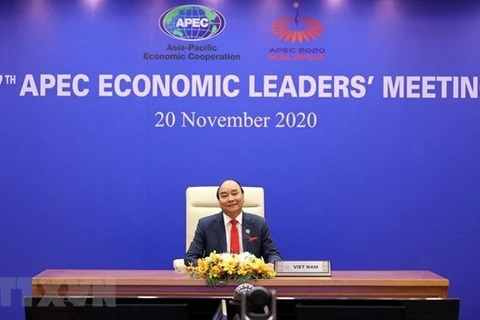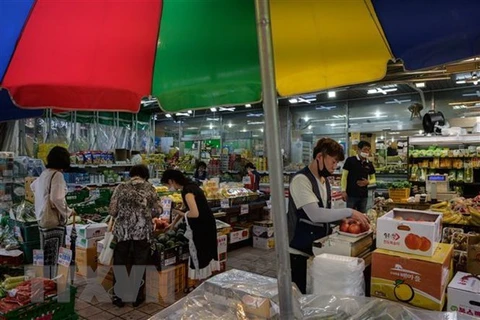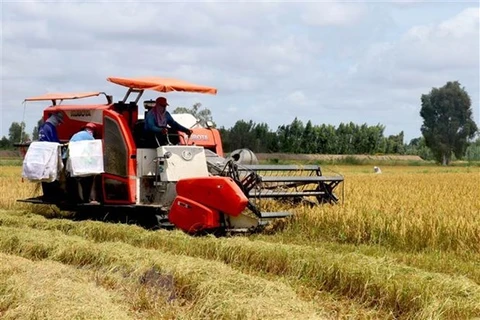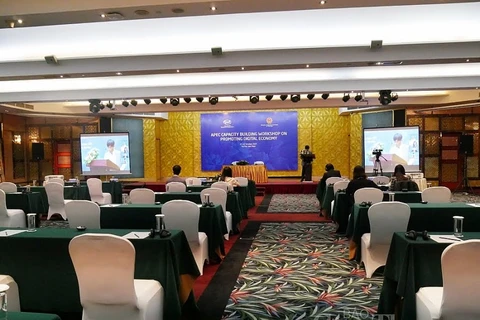Kuala Lumpur (VNA) – The economy of the Asia Pacific Economic Cooperation (APEC) region is forecast to grow by 6 percent this year and will settle at 4.9 percent in 2022, in anticipation of the unwinding of fiscal and monetary support measures, says a newly published report on economic trends in the Asia-Pacific.
According to the latest APEC Regional Trends Analysis (ARTA), the Asia-Pacific expanded 8 percent in the first half of this year and contracted 3.7 percent in the first half of 2020. However, growth among member economies continues to diverge and uncertainties remain substantial.
Growth in the volume and value of merchandise trade accelerated by double digits in the first half of this year thanks to the combined effect of a low comparison point following a substantial economic contraction a year ago and a rebound in economic activity. Trade in COVID-19-associated goods such as pharmaceuticals, telecommunications equipment and computers continued to be strong.
However, the analysis also saw a steep decline in greenfield investments to the APEC region, plunging to the lowest level in almost 20 years. This is particularly concerning given the crucial role they play in boosting infrastructure development and productivity as well as improving domestic technology and skills.
Rising inflation is also a matter of concern, the report said. The region recorded a higher inflation rate of 2.6 percent in the first nine months of 2021, after averaging 1.5 percent in 2020. The analysis points out the risk of an upward trend in inflation to economic recovery if left unaddressed.
Dr. Denis Hew, Director of the APEC Policy Support Unit, which produced the report, said APEC recorded a recovery even amid an ongoing pandemic. He emphasised that there are many hard-earned lessons to be learned from the pandemic, in which economic, trade and health policies are intertwined, adding that good policies are important.
Denis said unequal access to vaccines needs to be addressed urgently to avoid a two-track recovery. He suggested that APEC economies should also think ahead before deciding to reopen their economies, gradually reviving sectors such as tourism and travel, and resume manufacturing industries.
The report also addressed the existential threat of climate change for the region and humanity as a whole, as it will affect APEC economies’ financial systems, supply chains and consumer behaviour.
Emmanuel San Andres, an analyst at the APEC Policy Support Unit who co-wrote the report, said that addressing climate change is the realm not only of scientists but of policymakers who can change the incentive structures and the rules.
The report noted that even in the best-case scenario, where climate change is kept at or below 2.0 degree Celsius, APEC can expect GDP losses of up to 11.3 percent by 2050.
According to San Andres, tackling climate change requires a holistic approach across a range of areas and issues, including ensuring that implementation of green policies addresses its negative side effects./.

Informal meeting of APEC leaders: cooperation to accelerate post-pandemic recovery
President Nguyen Xuan Phuc will attend a virtual informal meeting of leaders of the Asia-Pacific Economic Cooperation (APEC) forum on July 16 at the invitation of APEC 2021 chair - New Zealand Prime Minister Jacinda Ardern.
























